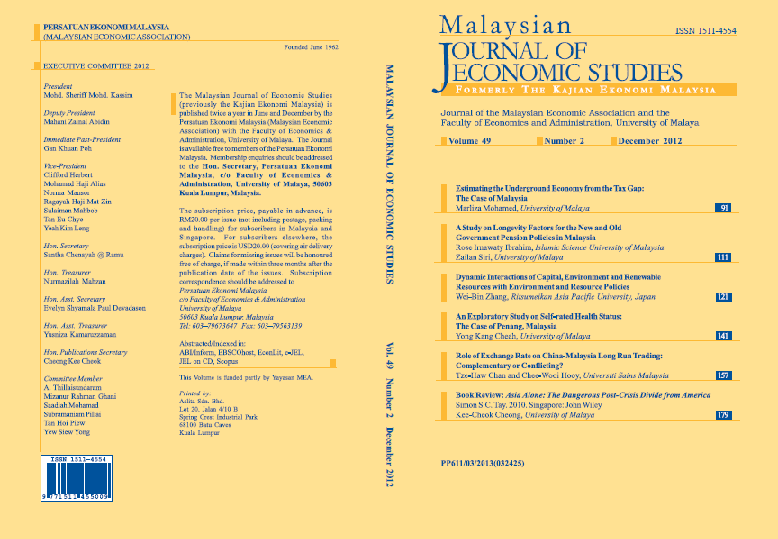An Exploratory Study on Self-rated Health Status: The Case of Penang, Malaysia
Keywords:
Demography, Malaysia, ordered probit, Penang, self-rated healthAbstract
This study examines the impact of socio-demographic and lifestyle-behavioural factors on self-rated health status. Using data from a primary survey in Penang, Malaysia of 398 observations, ordered probit model was applied to estimate the probabilities of individuals to rate their own health as poor, fair or excellent. Results suggest that high income individuals, residents in rural areas and those taking part in physical activity frequently are 42.6, 12.3 and 29.2 per cent more likely to rate their own health as excellent, respectively. On the other hand, older individuals are 0.6 per cent more likely to rate their own health as poor and 6.8 per cent more likely to rate their own health as fair. Similarly, those suffering from chronic diseases are 11.3 per cent more likely to self-rate their health as poor and 22.6 per cent more likely to self-rate their health as fair. Based on these outcomes, several policy implications are suggested vis-Ã -vis how individuals view their own health.

